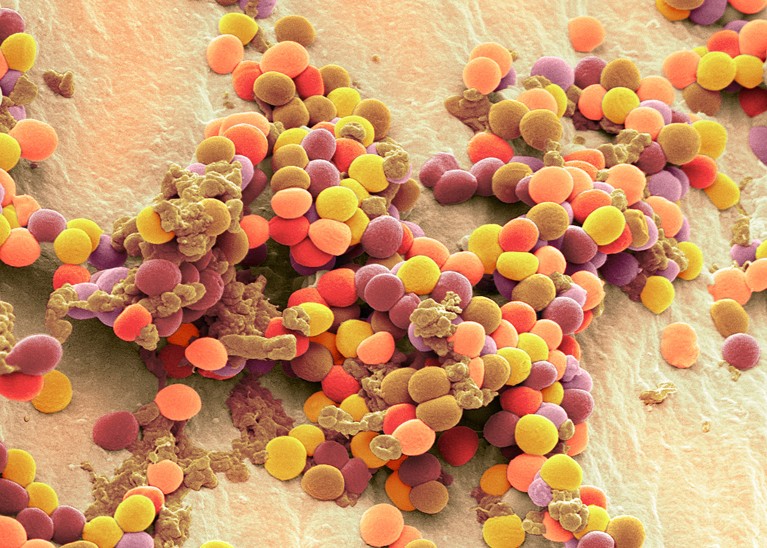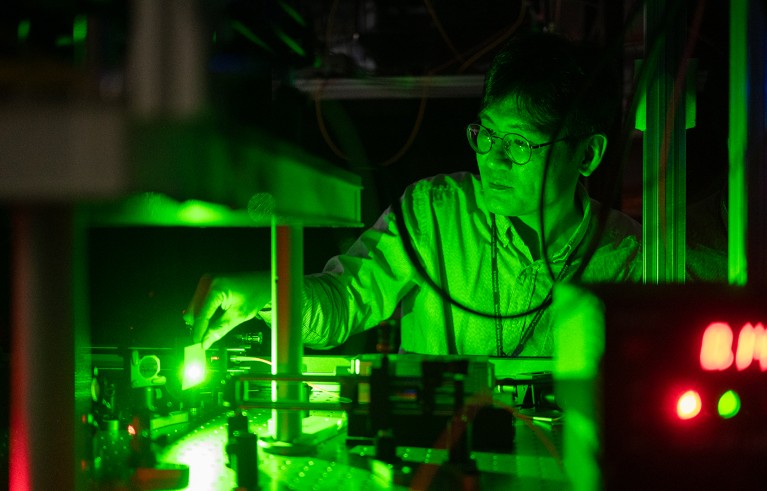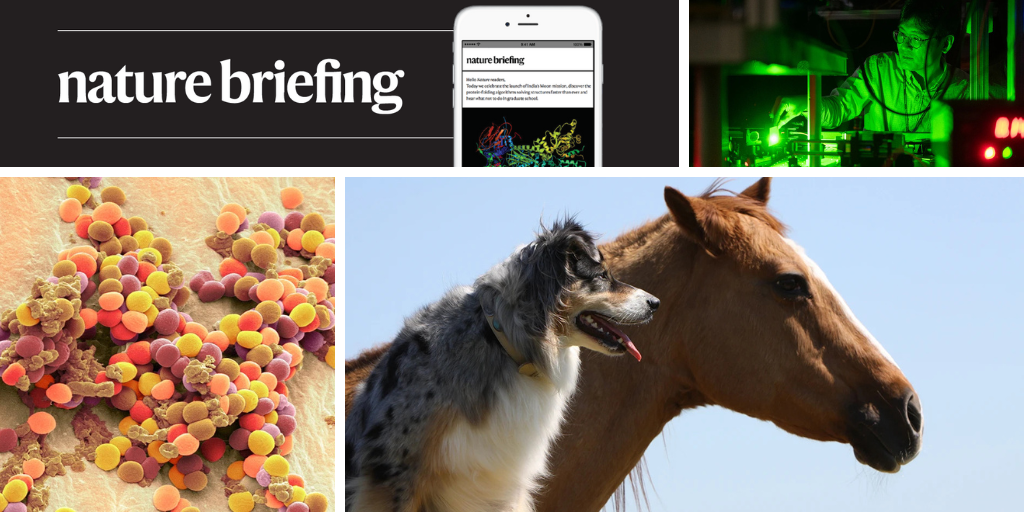Hello Nature readers, would you like to get this Briefing in your inbox free every day? Sign up here.

Staphylococcus bacteria are responsible for many infectious diseases.Credit: Steve Gschmeissner/SPL
Scientists have identified more than 45,000 bacterial species — but just a handful of these have been deeply studied. Paul Jensen, a microbial-systems biologist, discovered that just 10 bacterial species account for half of all publications, whereas nearly three-quarters of all named bacteria don’t have a single paper devoted to them. “Automating microbiology with robotics and artificial intelligence will accelerate our field, but we need to apply these tools to the myriad species that live in the understudied corners of our world,” Jensen wrote, including ones important to human health and those found in the ocean or soil.
Reference: bioRxiv preprint (not peer reviewed)
Facebook’s parent company Meta has announced plans to scrap the platform’s fact-checking programme, which pays independent groups to verify selected articles and posts. The programme could be replaced by a system similar to the ‘community notes’ used by X (née Twitter), in which corrections and context are crowdsourced from users and added to posts. “Studies provide very consistent evidence that fact-checking does at least partially reduce misperceptions about false claims,” says social psychologist Sander van der Linden. “Replacing fact checking with community notes just seems like it would make things a lot worse.”
Features & opinion
“Evolution must proceed where development leads,” write Kevin Lala and four other eminent evolutionary biologists in their book Evolution Evolving. Their argument challenges a central tenet of the theory of evolution, reasoning that the development of an organism impacts its evolution, not just natural selection. Their intention is not to overthrow modern thinking, but to offer “a fresh vision of how evolution works”, writes evolutionary geneticist Eva Jablonka in her review. “It’s rare that researchers question theories that make up the backbone of whole fields,” says Jablonka. But Lala and his colleagues “do just that”.
Genomics researcher Richard Kuo launched a biotech spin-off company called Wobble Genomics, which is using breast-cancer testing as a proof-of-concept for the idea that long-read RNA sequencing can be used to detect signs of diseases in the blood. Along with the tech-transfer team at his university, he was aided by a government grant programme and mentorship by a life-sciences venture capitalist. As for the name, it came from Francis Crick’s term for the way that for every three nucleotides, the third base in that triplet could pair in a more flexible way, or with a ‘wobble’. “I had this test for myself: if your company name could be used as the name of an evil organization in a sci-fi film, it’s probably not a great name,” says Kuo. “I thought, with Wobble Genomics, that probably wouldn’t happen.”
Where I work

Sang-Wook Han is the head of the quantum technology centre at the Korea Institute of Science and Technology in Seoul.Credit: Dave Tacon for Nature
Sang-Wook Han leads the quantum-technology centre at the Korea Institute of Science and Technology. “These machines will be able to do massive computations that were impossible with conventional methods, sparking innovation in materials science, drug development, finance and defence,” he says. “Better technology can come from simply advancing existing methods, but innovative and disruptive technology requires something entirely new. This is the essence of quantum technology.” (Nature | 3 min read)
Today I (as a former physicist who is still having imaginary arguments with the writers of last year’s Netflix hit, 3 Body Problem) am enjoying a social-media bunfight about how, exactly, our expertise can ruin film and TV. Kicked off by nature writer Helen Macdonald, I’m discovering why ornithologists hate Braveheart and why art historians think Teenage Mutant Ninja Turtles is just plain unrealistic.
What production has been rendered unwatchable by your research? Let me know what has made you shout at the screen lately — plus any other feedback on this newsletter — at [email protected].
Thanks for reading,
Flora Graham, senior editor, Nature Briefing
With contributions by Jacob Smith and Josh Axelrod
Want more? Sign up to our other free Nature Briefing newsletters:
• Nature Briefing: Careers — insights, advice and award-winning journalism to help you optimize your working life
• Nature Briefing: Microbiology — the most abundant living entities on our planet — microorganisms — and the role they play in health, the environment and food systems
• Nature Briefing: Anthropocene — climate change, biodiversity, sustainability and geoengineering
• Nature Briefing: AI & Robotics — 100% written by humans, of course
• Nature Briefing: Cancer — a weekly newsletter written with cancer researchers in mind
• Nature Briefing: Translational Research — covers biotechnology, drug discovery and pharma


